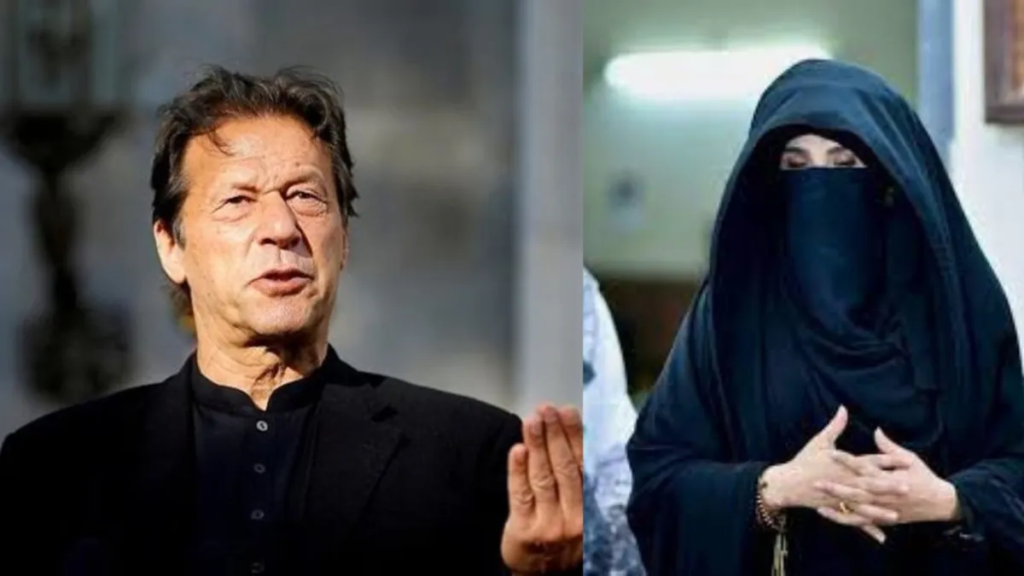The recent conviction of Imran Khan and his wife, Bushra Bibi, in the infamous Al-Qadir Trust case has sent shockwaves through Pakistan and beyond. This high-profile case centers on allegations of misappropriating PKR 50 billion, making it a pivotal moment in Pakistan’s political and legal history. Let’s break it down to understand what’s at stake and how it unfolded.
What Is the Al-Qadir Trust Case About?
The Al-Qadir Trust case revolves around the alleged misuse of PKR 50 billion (equivalent to £190 million) recovered by Britain’s National Crime Agency (NCA) in 2019. The funds were tied to a settlement between the NCA and a prominent property tycoon. While the NCA clarified that the settlement was a civil matter, accusations have emerged that Imran Khan, during his tenure as Pakistan’s Prime Minister, approved the deal without adequate disclosure or transparency.
The Role of the Al-Qadir Trust
Shortly after the settlement, the Al-Qadir Trust was established. The trust, allegedly created to legitimize the funds, lists Imran Khan, Bushra Bibi, and their close associates as its members. Critics argue that the trust’s creation was a smokescreen to divert public money for personal gains.
Corruption Allegations and Land Transfers
The corruption charges don’t stop at financial mismanagement. According to Pakistan’s National Accountability Bureau (NAB), Zul Bukhari, a close aide of Khan, received 458 kanals of land as part of the settlement approval process. The land, later registered under the Al-Qadir Trust, raises further questions about impropriety.
Key Witnesses and Evidence
The trial featured testimonies from former cabinet members and officials who revealed troubling details about the settlement’s approval. Witnesses painted a picture of a process riddled with opacity and favoritism. Notably, six co-accused, including Zul Bukhari and Farhat Shehzadi, were declared absconders, with their assets and bank accounts frozen.
Legal Proceedings: A Year of Drama
The legal battle has been nothing short of a rollercoaster. Imran Khan was first arrested on May 9, 2023, triggering massive protests by his supporters. Though he was released on bail shortly after, the case trudged along for over a year. Four different judges presided over the case, reflecting its complexity and high stakes. Notably, Khan’s request to summon 16 witnesses in his defense was denied, sparking further controversy.
The Verdict and Sentencing
The accountability court in Rawalpindi handed Imran Khan a 14-year prison sentence and sentenced Bushra Bibi to 7 years. This landmark decision underscores the seriousness of the allegations and serves as a grim reminder of the challenges of accountability in Pakistan’s political sphere.
Nationwide Reactions and Protests
The verdict has polarized public opinion. Supporters of Imran Khan view the case as politically motivated, aimed at silencing one of Pakistan’s most influential leaders. Meanwhile, critics see it as a long-overdue reckoning for alleged corruption during his administration.
What Does This Mean for Pakistan’s Political Landscape?
The convictions of Imran Khan and Bushra Bibi mark a turning point in Pakistan’s political history. For many, it symbolizes a crackdown on corruption, albeit with significant political undertones. However, the fallout could deepen divisions in an already fragile political environment.
Public and International Response
Internationally, the case has garnered significant attention, with many questioning the implications for Pakistan’s democracy. Domestically, the public remains deeply divided, with Khan’s loyalists vowing to continue their protests and critics calling for broader accountability.
The Larger Picture
The Al-Qadir Trust case isn’t just about Imran Khan and his wife. It’s a reflection of the broader challenges Pakistan faces in its fight against corruption. The case underscores the need for transparent governance and robust legal systems to rebuild public trust.
What’s Next for Imran Khan?
While Imran Khan begins his 14-year sentence, the road ahead is uncertain. His legal team is expected to appeal the verdict, but the process could take years. Meanwhile, his political career and legacy hang in the balance.
Read More: Bharat Mobility Global Expo 2025: What’s Happening and Why You Should Go?
Conclusion
The Al-Qadir Trust case is more than just a legal battle; it’s a story of power, accountability, and the complex interplay of politics and justice in Pakistan. Whether you view Imran Khan as a victim of political vendetta or as a leader who betrayed public trust, one thing is clear: this case will shape Pakistan’s political discourse for years to come.










